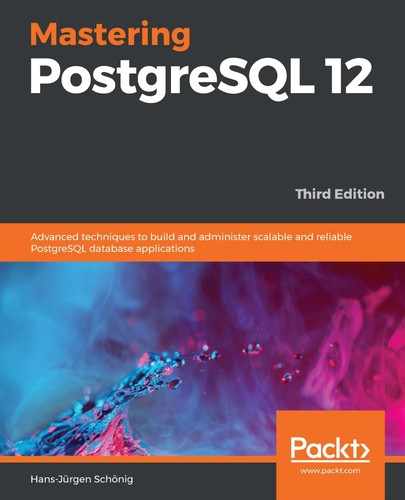To do fuzzy searching with PostgreSQL, you can add the pg_trgm extension. To activate this extension, just run the following command:
test=# CREATE EXTENSION pg_trgm; CREATE EXTENSION
The pg_trgm extension is pretty powerful, and to show you what it is capable of, I have compiled some sample data consisting of 2,354 names of villages and cities here in Austria, Europe.
Our sample data can be stored in a simple table:
test=# CREATE TABLE t_location (name text); CREATE TABLE
My company website has all the data available, and PostgreSQL allows you to load the data directly:
test=# COPY t_location FROM PROGRAM
'curl https://www.cybertec-postgresql.com/secret/orte.txt'; COPY 2354
Once the data has been loaded, it is possible to check out the contents of the table:
test=# SELECT * FROM t_location LIMIT 4;
name
--------------------------------
Eisenstadt
Rust
Breitenbrunn am Neusiedler See
Donnerskirchen
(4 rows)
If German is not your mother tongue, it will be impossible to spell the names of those locations without severe mistakes.
pg_trgm provides us with a distance operator that computes the distance between two strings:
test=# SELECT 'abcde' <-> 'abdeacb'; ?column? ---------- 0.833333
(1 row)
The distance is a number between 0 and 1. The lower the number, the more similar the two strings are.
How does this work? Trigrams take a string and dissect it into sequences of three characters each:
test=# SELECT show_trgm('abcdef');
show_trgm
-------------------------------------
{" a"," ab",abc,bcd,cde,def,"ef "}
(1 row)
These sequences will then be used to come up with the distance you have just seen. Of course, the distance operator can be used inside a query to find the closest match:
test=# SELECT *
FROM t_location
ORDER BY name <-> 'Kramertneusiedel'
LIMIT 3; name
-----------------
Gramatneusiedl
Klein-Neusiedl
Potzneusiedl
(3 rows)
Gramatneusiedl is pretty close to Kramertneusiedel. It sounds similar, and using a K instead of a G is a pretty common mistake. On Google, you will sometimes see Did you mean. It is quite likely that Google is using n-grams here to do that.
In PostgreSQL, it is possible to use GiST to index on text using trigrams:
test=# CREATE INDEX idx_trgm ON t_location
USING GiST(name GiST_trgm_ops); CREATE INDEX
pg_trgm provides us with the GiST_trgm_ops operator class, which is designed to do similarity searches. The following code shows that the index is used as expected:
test=# explain SELECT *
FROM t_location
ORDER BY name <-> 'Kramertneusiedel'
LIMIT 5; QUERY PLAN
-----------------------------------------------------------------
Limit (cost=0.14..0.58 rows=5 width=17)
-> Index Scan using idx_trgm on t_location
(cost=0.14..207.22 rows=2354 width=17)
Order By: (name <-> 'Kramertneusiedel'::text)
(3 rows)
